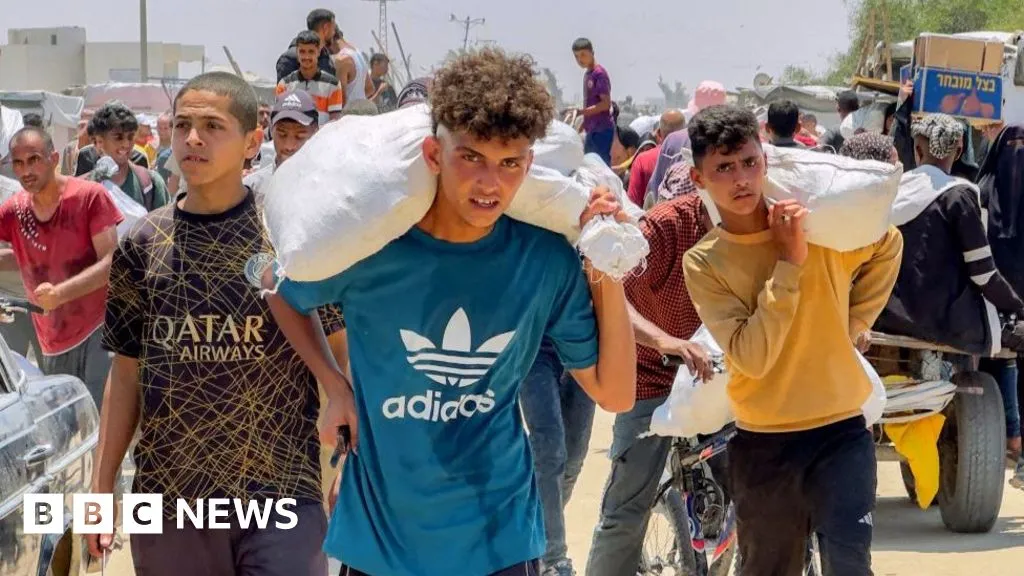"We're very transparent about where our funding comes from. By contrast... no-one really knows very much about this [GHF]."
He describes the new aid project as "a Hunger Games distribution network", a reference to a dystopian fiction saga.
Mr Deere is calling for the UN to be allowed fully back into Gaza to get food aid to Palestinians again professionally, and at scale.
"I do not know, I cannot fathom, as a UN employee or even as an American, how the world can accept this situation," he adds.
Other UN agencies and aid groups have escalated their criticism of the GHF project.
They believe the GHF is breaching the fundamental humanitarian principle of independence.
In other words, they argue that if aid providers working in a conflict are seen as taking a side, those workers and the aid recipients risk becoming targets.
They say the GHF has militarised the aid supply, endangering civilians who also have to cross front lines to get to the distribution sites, while disadvantaging the weak and sick.
For its part, Israel alleges that UNWRA is not neutral. Last year, after accusations made by Israel, the UN fired nine staff out of UNRWA's 17,000-strong workforce, saying they may have been involved in the October 7 attacks.
It didn't specify what they were accused of, while UNRWA says the initial claims have still not been proven. In the Gaza war, according to the agency, at least 310 UNRWA workers have been killed, the vast majority of them by the Israeli army.
I press Bill Deere, of UNRWA, on Israel and GHF's criticism, that Hamas was diverting aid under the UN system. He says Israel has never offered proof.
"This is just a made-up excuse in order to create a system that looks like it's helping people without actually helping people," he says.
As we continue our search to find out more about GHF, I make my way to the official Delaware state building that holds company records.
Our team has requested GHF's certificate of incorporation and other linked documents. A woman who works in the records office hands us three pages stapled together.
They reveal only the address of the agents we've just visited, and that the GHF changed its name from the "Global Humanitarian Fund" to the "Gaza Humanitarian Foundation" on 28 April.
It's signed "Loik Henderson, President".
According to the leaked May document, Mr Henderson is a lawyer "with decades of experience [including] Fortune 500 companies". We try to reach him by phone, but get no response.
The next day, a statement arrives from a GHF email address, which isn't attributed to any named press officer and contains no numbers to reach its media operation.
It says the foundation has given out 19 lorry loads of food that day.
The UN system was getting in 600 per day during the ceasefire. For a population of more than two million people, the current daily amount is clearly nowhere near enough; borne out by images of an apocalyptic scene as desperate crowds have descended from barren, sandy dunes over fences into one aid site this week.
The email contains a section entitled "inaccurate news reporting", having earlier in the week heavily criticised media organisations for "fabricated and exaggerated narratives".
